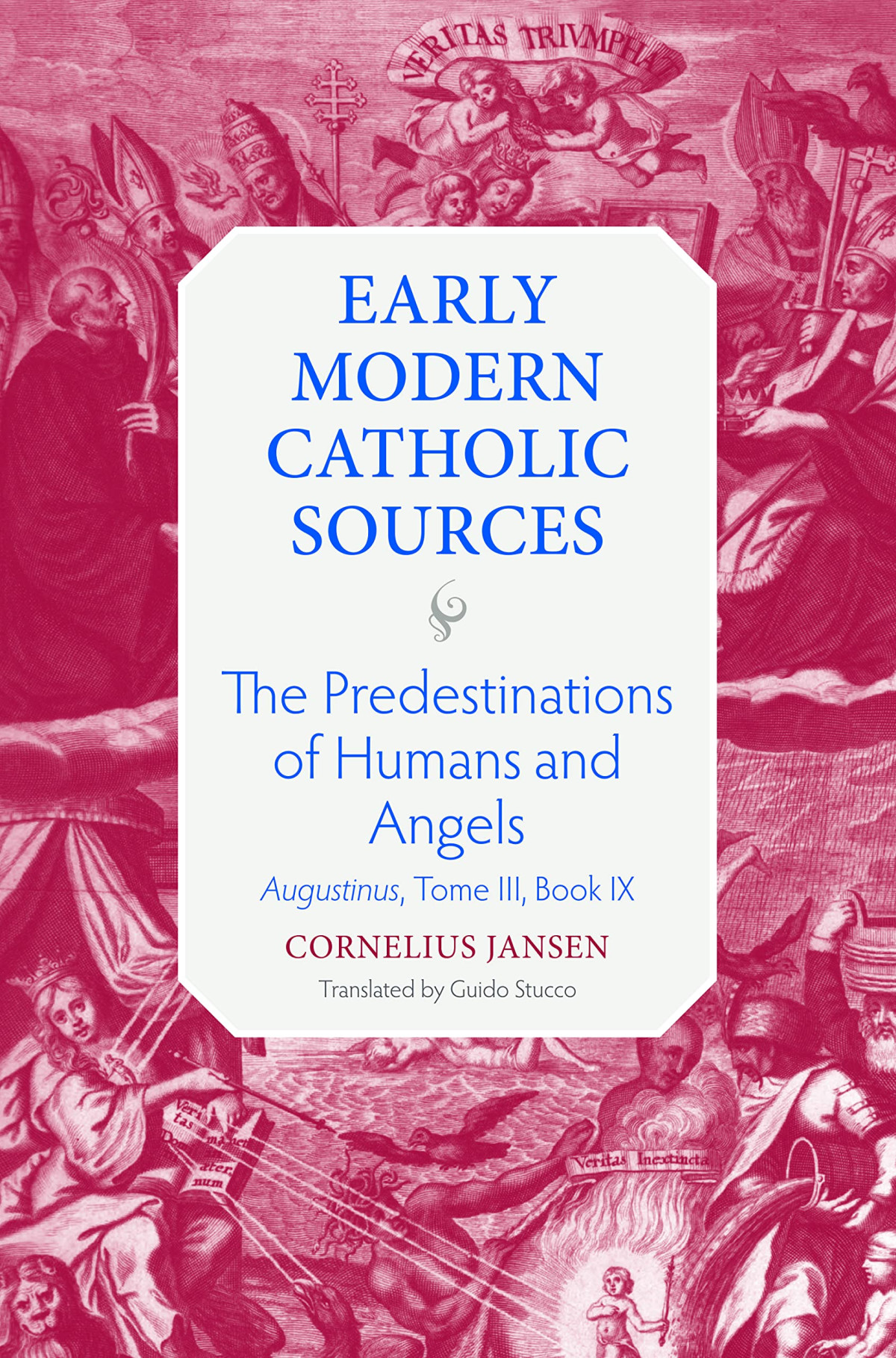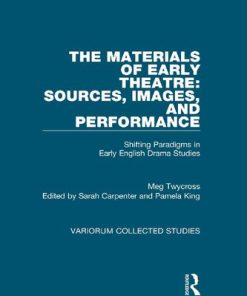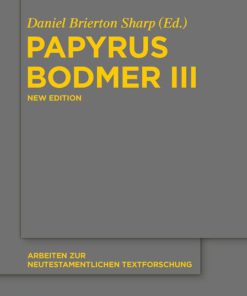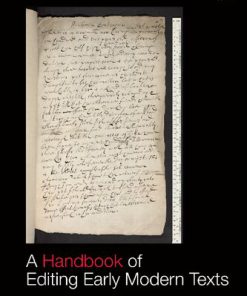The Predestination of Humans Augustinus Tome III Book IX Early Modern Catholic Sources 4 1st Edition by Cornelius Jansen 0813235421 978-0813235424
$50.00 Original price was: $50.00.$25.00Current price is: $25.00.
The Predestination of Humans Augustinus Tome III Book IX Early Modern Catholic Sources 4 1st Edition by Cornelius Jansen – Ebook PDF Instant Download/Delivery: 0813235421, 978-0813235424
Full download The Predestination of Humans Augustinus Tome III Book IX Early Modern Catholic Sources 4 1st Edition after payment
Product details:
ISBN 10: 0813235421
ISBN 13: 978-0813235424
Author: Cornelius Jansen
No other theological text polarized the early modern Catholic world as much as Cornelius Jansen’s Augustinus. In it the erudite bishop not only reconstructed St. Augustine’s teaching on grace and free will, but also boldly claimed that his views were in line with the Council of Trent and the Society of Jesus. For Jansen the latter had marginalized the Church Father’s doctrine on divine predestination by overemphasizing human free will. Published after his death in 1640, Jansen’s work drew a large crowd of followers and inspired an Augustinian reform movement. Its papal condemnation unintentionally spread this theology, but stifled an impassionate, academic engagement with the Augustinus. This first-ever translation of some of its central chapters enables historians, philosophers and theologians to finally engage with the founding text of Jansenism.
The Predestination of Humans Augustinus Tome III Book IX Early Modern Catholic Sources 4 1st Table of contents:
ONE. Predestination is God’s eternal decree through which he acts in history.
TWO. What is predestination concerned with? Grace is the effect of predestination.
THREE. What is predestination concerned with? Grace is the effect of predestination (continued).
FOUR. We should talk about double predestination to life and to death (Council of Valence).
FIVE. Other words for predestination: election, divine purpose, discernment.
SIX. Three erroneous views about predestination: Pelagians, Semipelagians, and Manicheans.
SEVEN. In what sense does God foresee? a) simple intelligence; b) middle knowledge (incompatible with efficacious grace); c) knowledge of vision (the science of vision). Predestination is not the same as foreknowledge.
EIGHT. The grace of the Savior rescues us from massa damnata and leads us infallibly to heaven.
NINE. About vocati non secundum propositum: general predestination to goodness. They are justified only apparently, but since they were not predestined they do not persevere.
TEN. The predestination of merits: angels receive predestination as a reward for their merits, though they are not predestined to grace because they do not require it. They freely chose to serve God. This could have been true of Adam and his progeny as well had he not fallen.
ELEVEN. For fallen man, there is a need for predestination to grace.
TWELVE. For the angels, there is no predestination, but foreknowledge; in this case, we can speak of merely adjutorium sine quo non.
THIRTEEN. God rewards angels’ merits.
FOURTEEN. God rewards them after seeing their merits.
FIFTEEN. Modern theology has fallen into three errors:
i. Thomists uphold physical premotion;
ii. Molinists reject efficacious grace as contrary to freedom, and say that the outcome of God’s sufficient grace depends on our will;
iii. Suárez says predestination is based on foreknowledge.
SIXTEEN. Weak objection by Lessius: not all the people to whom Paul wrote Rom 8:28 must have persevered to the end. This shows that (a) predestination is based on foreseen merits; (b) perseverance depends on our will cooperating with grace. Paul’s use of synecdoche to make his point.
NINETEEN. Predestination is not based on foreknowledge: God infallibly obtains the intended effects. He rescues some from massa damnata; lessens the power of temptation; defends people against them; accelerates death.
TWENTY. God grants faith and love to some, but not final perseverance (this is Augustine’s distinction between vocati and vocati secundum propositum).
TWENTY-ONE. Predestination is based on God’s will and not on foreseen merits.
TWENTY-TWO. Molina said that God’s foreknowledge
comes first. It is absurd, according to Jansenius, to celebrate God’s power only to say that when it comes to human beings he depends on and waits for our will to act. In that case, God does not want but simply approves what has been done. Augustine says that God does not choose people because they believed, but so that they may believe.
TWENTY-THREE. The great error, and the very origin of
the Semipelagian heresy, was that Massilians opposed God’s predestination based on his will: Jansenius says that they saw it as pagan fatum.
TWENTY-FOUR. Lessius uses a text of Augustine to make his point.
TWENTY-FIVE. Why does God predestine some and not others? Various theories say that it depends on man’s will. It is indeed a mystery, though we can be sure that God is fair.
TWENTY-SIX. Angels are foreknown, men are predestined (because of the Fall).
People also search for The Predestination of Humans Augustinus Tome III Book IX Early Modern Catholic Sources 4 1st:
augustine predestination of the saints
augustine predestination and free will
augustinian theory of predestination
augustine predestination quotes
Tags:
Cornelius Jansen,Predestination,Humans Augustinus
You may also like…
Arts - Performing Arts
Religion & Spirituality - Bible
Housekeeping & Leisure - Role-Playing & Fantasy Games
Business & Economics - Professional Finance
CFA 2024 Level III SchweserNotes Book 4 1st Edition by Kaplan Schweser ISBN 078837576 978-078837576
Romance - LGBTQ+ Romance
History - European History
Jurisprudence & Law - Tort & Liability Law












